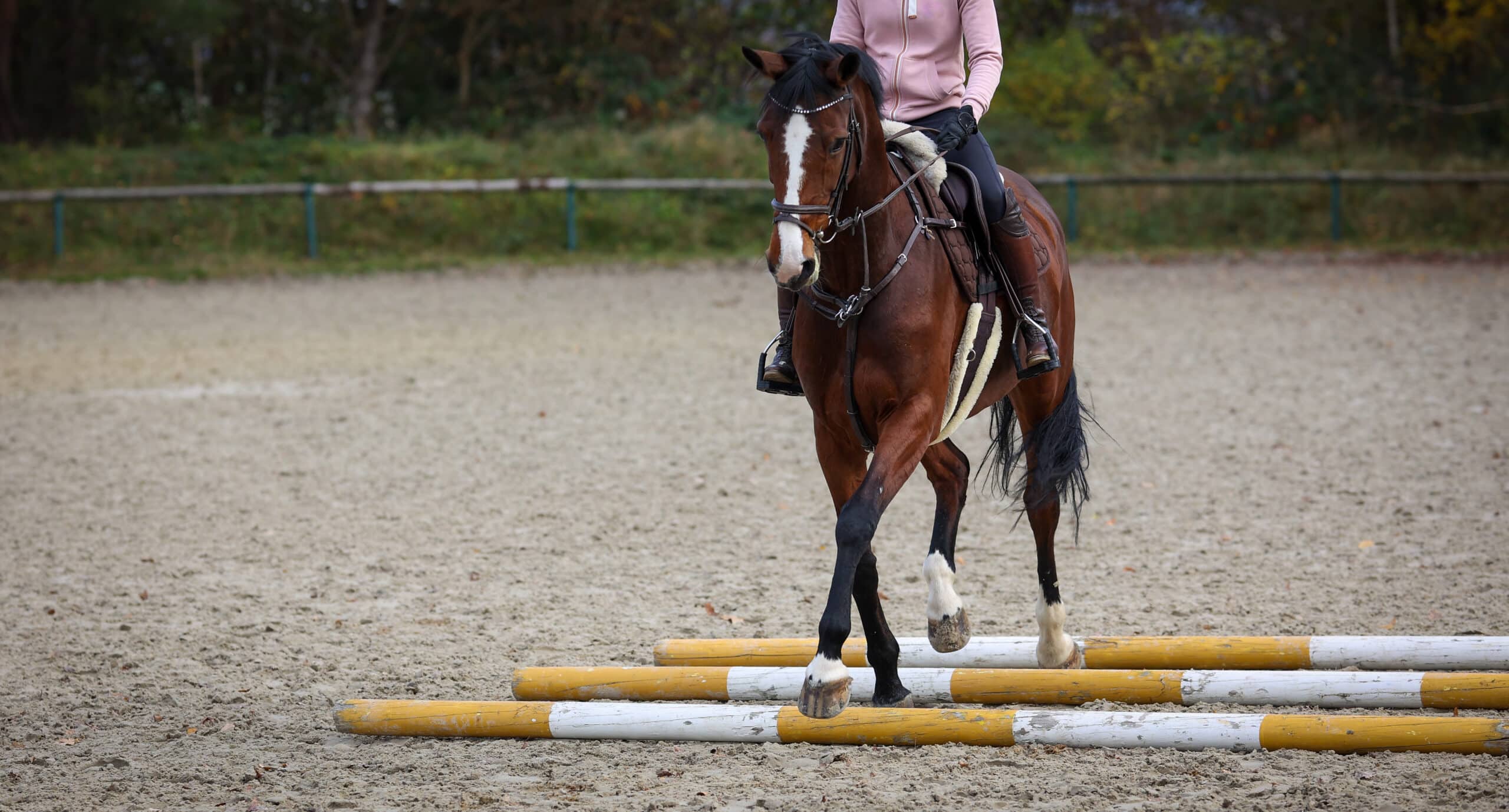8 Must Have Horse Training Gear Items
Training a horse is more than just teaching commands, it is about building a relationship based on communication, trust, and consistency. Whether you are working with a young horse for the first time or refining an experienced partner’s skills, having the right tools makes the process safer and more effective. In this guide we will explore essential horse training gear and how each item supports your horse’s development.
At The Trainer’s Loft, we believe quality gear is key to both progress and safety. From groundwork to riding, each piece of equipment plays a role in clear communication and positive outcomes. Let us walk through the most useful training gear for every stage of your horse’s journey. For our current selection of horse training gear, click here!
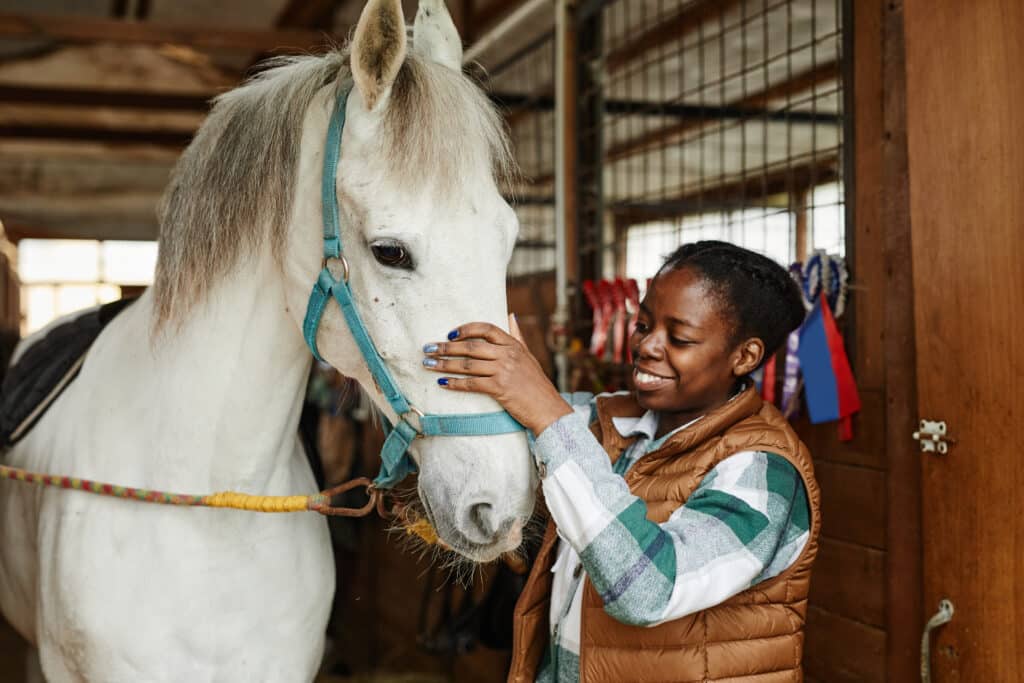
1. Halters and Lead Ropes
It all starts with the basics. A well fitted halter and strong, comfortable lead rope are essential for ground training, leading, and daily handling. Rope halters are especially useful for training because they offer more precise pressure points for cues, while flat nylon halters are better for casual use or turnout. Training lead ropes are often 10 to 14 feet long to allow space for lunging, groundwork exercise, and teaching respect for personal boundaries.
2. Lunge Lines and Lunge Whips
Lunging is one of the most common groundwork exercises in horse training. It helps develop balance, rhythm, and voice command recognition. A lunge line – typically 25 to 30 feet long – allows the horse to circle the handler at a safe distance. Paired with a lunge whip, you can guide the horse’s direction, speed, and attention without ever needing to touch them. Both tools help you build fitness and focus from the ground before introducing or reinforcing ridden work.
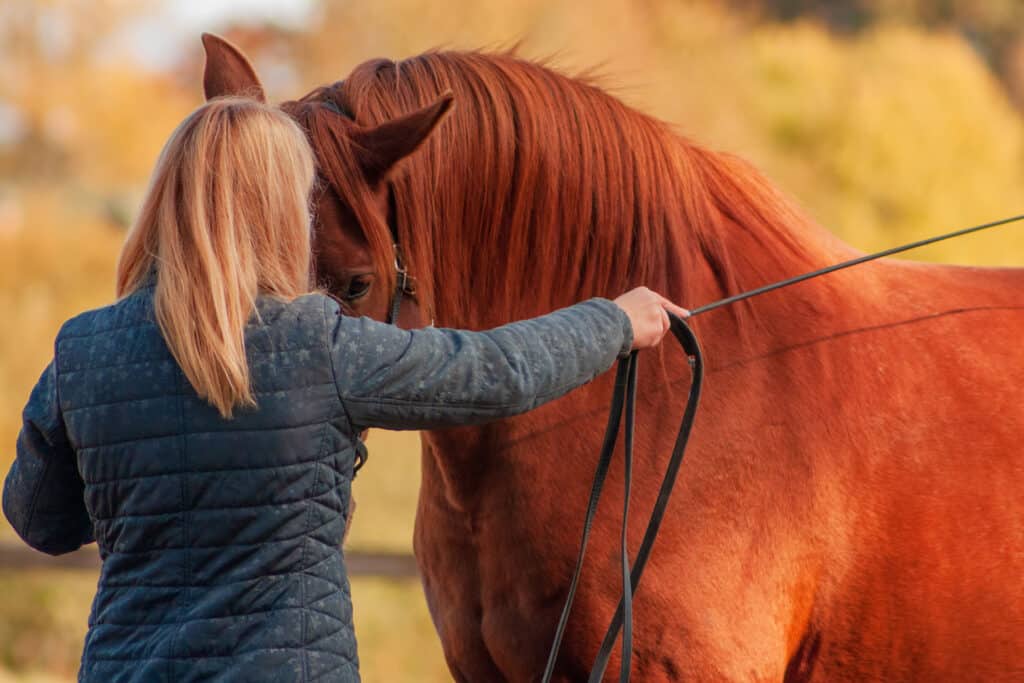
3. Training Surcingles and Side Reins
For horses learning to carry themselves properly or adjust to new contact, a surcingle and side reins can provide a safe and structured introduction to rein pressure. The surcingle fits around the horse’s barrel and includes rings to attach side reins or other aids. Side reins encourage the horse to maintain steady contact and balance while moving in a natural frame, teaching responsiveness to rein cues before adding the weight of a rider.
4. Long Lines or Double Lunge Lines
Long lining is a more advanced groundwork method that allows you to work your horse from behind, simulating the feel of riding while keeping all four feet on the ground. It helps improve bend, straightness, and transitions, and is especially useful in training young or green horses. The gear typically includes a surcingle, bridle, or cavesson, and two lunge lines used in tandem.
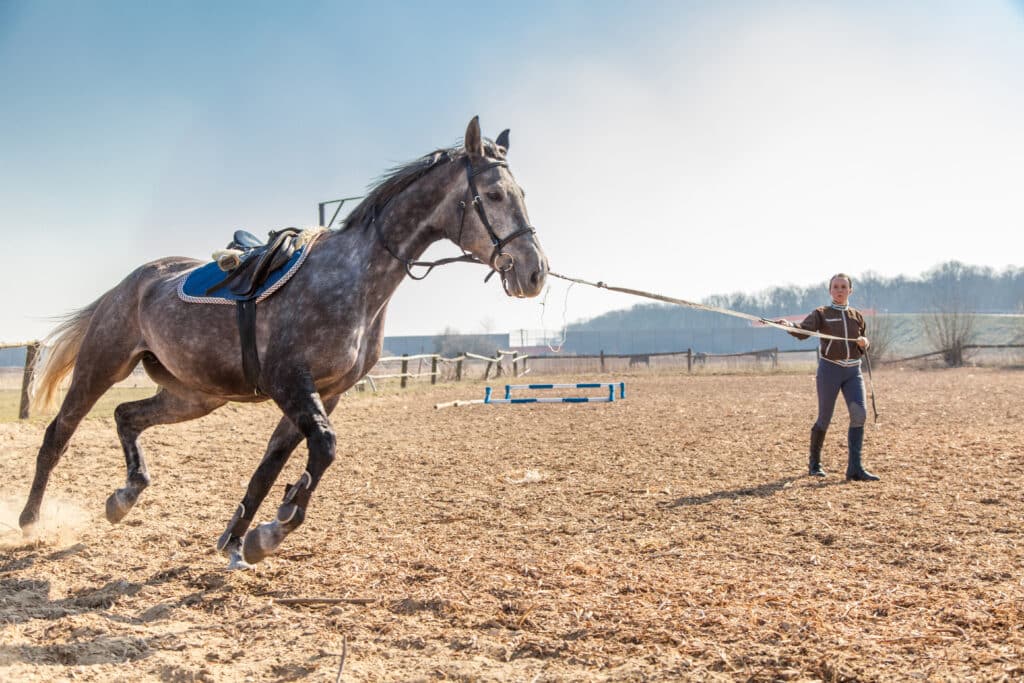
5. Training Saddles and Saddle Pads
When it’s time to introduce a saddle, using a lightweight training saddle or synthetic work saddle is ideal. These saddles are easier for young horses to carry and less expensive then high end show tack, which make take a beating during the training process. Pair the saddle with a thick, well fitted training pad to ensure comfort and prevent soreness as the horse adjusts.
6. Snaffle Bits and Training Bridles
For most horses, a simple snaffle bit is the go to choice for early training. It encourages acceptance of contact and helps teach rein pressure without overwhelming the horse’s mouth. Choose a bridle that fits well, is easy to adjust, and holds up to repeated use during groundwork and riding sessions.
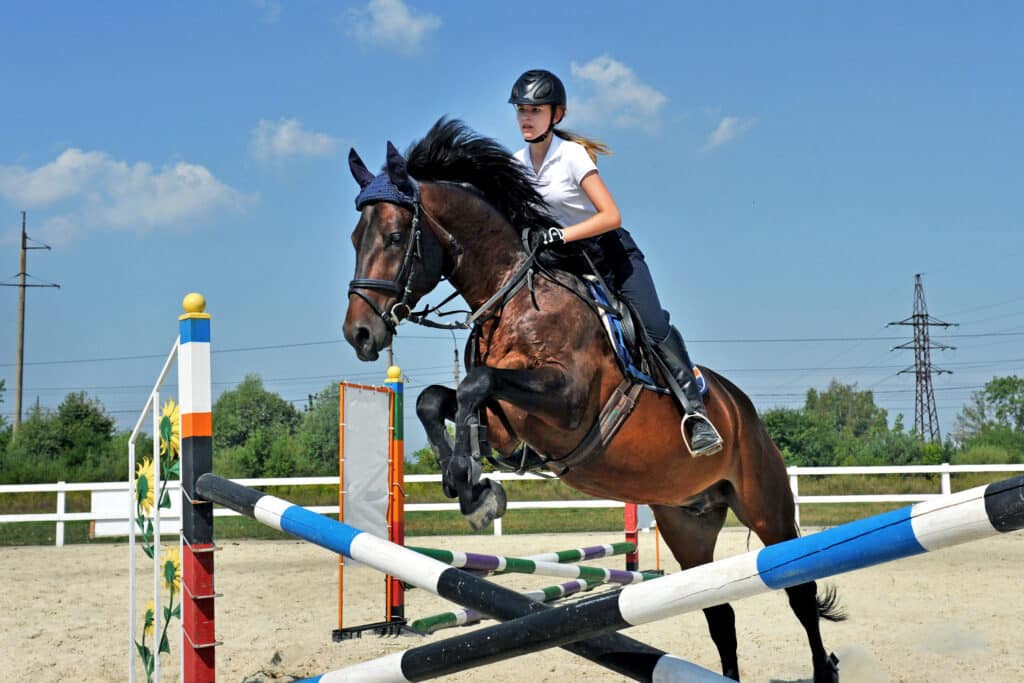
7. Ground Poles and Cones
Training isn’t all about tack. Simple, inexpensive items like ground poles and cones are extremely useful for building coordination, spatial awareness, and mental focus. You can create obstacle courses, teach patterns, and break up routine sessions to keep your horse mentally engaged.
8. Protective Boots and Leg Wraps
Safety is always a priority when training. As horses learn new movements, they may interfere or stumble, so leg protection is important. Splint boots, bell boots, or polo wraps can help prevent bumps, scrapes, or more serious injuries while lunging or riding.
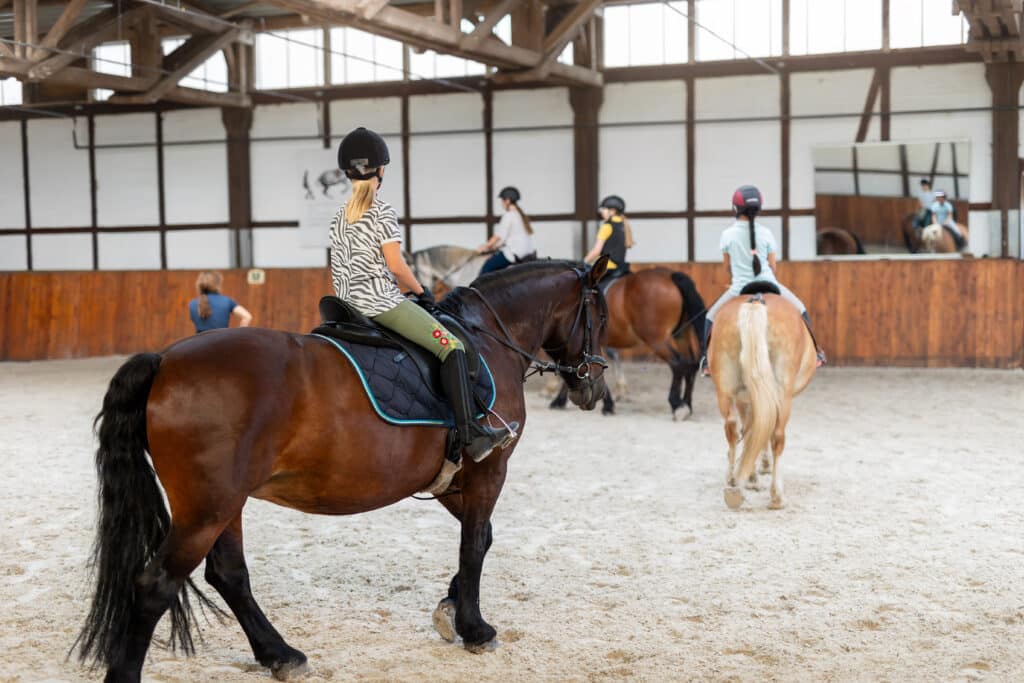
Horse Training Gear for Success
Horse training gear should never be a substitute for patience and consistency, but the right tools can help support your horse’s learning and reduce risk for both of you. The more thoughtful the training gear and approach, the more confident your horse can progress through each phase of training.
At The Trainer’s Loft, we carry a wide range of horse training gear for groundwork, lunging, riding, and more. Whether you are starting a young colt or fine tuning your seasoned show horse, we are here to help you find the tools that fit your program, goals, and horse’s needs. For our current selection of horse training gear, click here!

